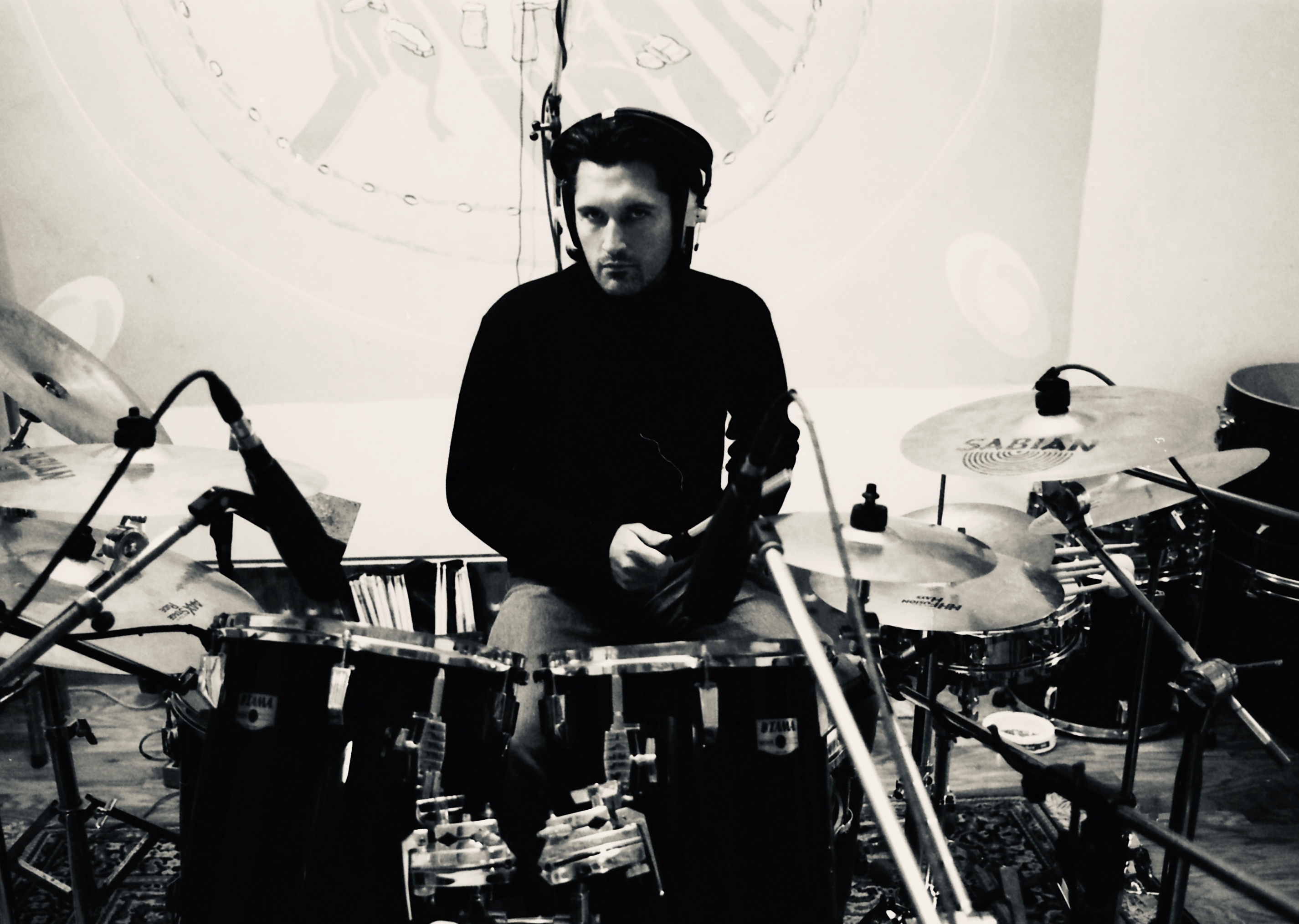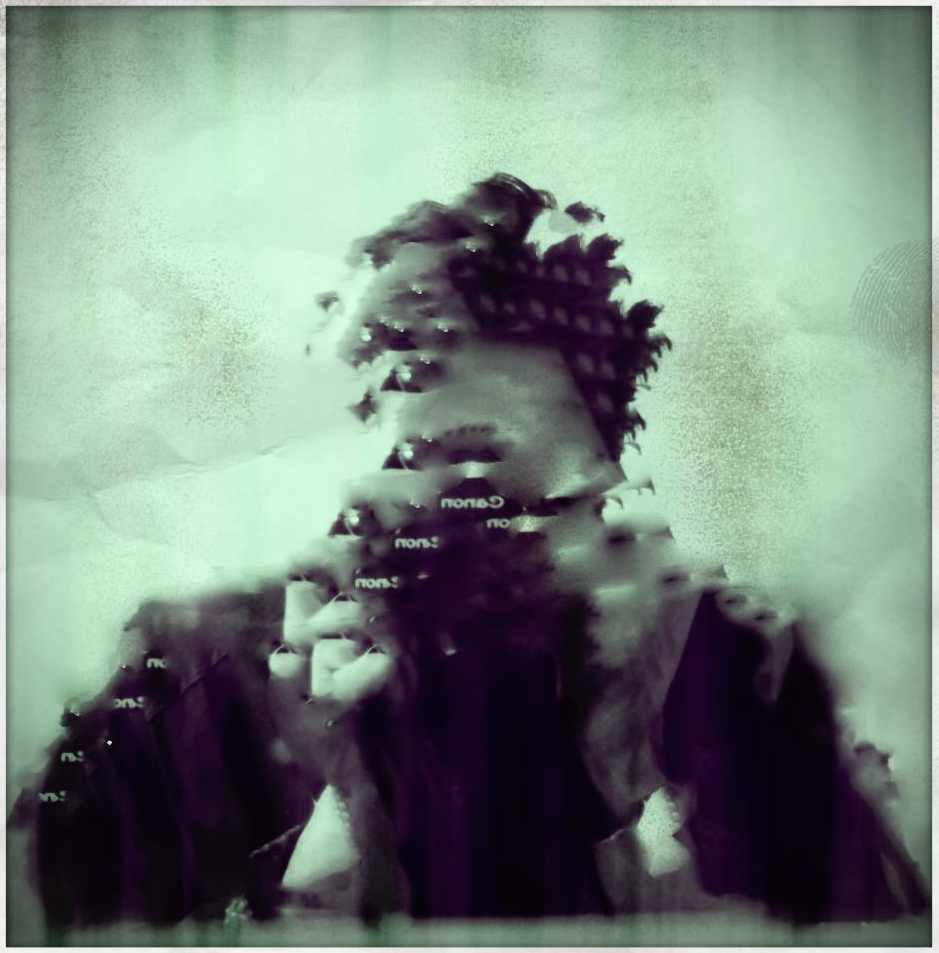Yes, I used to process film and make prints in the darkroom. It was good to learn the basic techniques and get an understanding of how film and photo paper respond. I’ve not done any of that in a long time though. All requirements for printing now comes out of a computer rather than a darkroom so unless you’re specifically attempting to experiment with analogue printing in an artistic way there’s not much need for a darkroom set-up.
hi Steve, I have a question about the ownership of a piece of music. Some bands like Exit North are joint owner (except for the lyrics), but with Japan it’s only one person usually your brother. I am curious what a tipping point and the boundary is. If you invented the drums yourself why aren’t you the co-composer? I personally think that what makes Japan specific is the uniqueness of the drums and bass. For example Methods of dance would sound very different if Ringo Starr played it. I am convinced that if you perform solo I would have a fantastic night. Mick also had such a specific sound. I am curious how something like this goes. Did David also specifically indicated how to play the drums or bass? Regards Frank. The Netherlands. See you in Helmond next year.
Hi Frank. So you want to know what justifies being the composer and thereby claiming ownership of the music, (not ownership of the recorded music, which is very different).
The traditional, recognised elements of song composition are made up of chord structures, vocal melody and lyrics. David Sylvian was responsible for all of these with the group JAPAN and therefore it didn’t seem unreasonable when our manager (being particularly ‘old-school’) at the very beginning of the bands career determined DS as the sole composer. This wasn’t uncommon at the time and it went unchallenged in our band as we felt it must surely be correct due to the way that JAPAN songs were conceived. But bands evolved over time to understand there isn’t always the same emphasis on one person being responsible for developing and crafting the work to the finished sound which creates the bands success. Bands also recognised that each member needs incentive to dedicate their time and energy, as well as their particular skillset and interaction as musicians in arranging and structuring songs, and that the best way of achieving this is to divide a share of the compositional rights with them so that in the event the band are successful there is some publishing revenue for all concerned. Regrettably this was never addressed with JAPAN therefore no provision was set aside for band members. So whereas a session musician would be paid by the hour (or track), the band members worked without pay, which is all well and good if you own a part of the composition because you are building a repertoire, but without that you are simply applying your craft to someone else’s repertoire and this doesn’t bode too well over the long term as publishing is essentially like a pension if a band were to become successful. With EXIT NORTH we go to more the other extreme because no single member wishes to earn more than the other, therefore we divide the composition rights equally between all four members regardless of how the songs are conceived both in terms of the music and the lyrics. I don’t think that could have worked for JAPAN but it would have perhaps been fairer to have allocated a small writers share to the band members in order that they were at least ultimately being paid for their time and creativity for their years spent developing the band, rather than having nothing much to show for it. I doubt everyone would agree but that’s my own view.
Hi Steve I always wondered …. When you played in Japan( band) your drum position was always centre of stage and faced to the audiences. But You were on the right side of stage and faced to the centre of stage and looked other members in Exit North. I also saw you playing on right side of stage in other performances. What is the reason why you positioned there ? I’m sorry if this question were stupid to ask …
Placing drummers centre stage is standard as the kit takes up quite a lot of space and usually makes the stage appear balanced by being central, and it also provides a more even spread of the drum sound in all directions for the band, and in the case of smaller venues, for the front of house mix.
Since the mid 90’s and performing as Jansen/Barbieri/Karn I would use additional equipment, (pads or keyboards & laptop) on my left side, so I would often be turning that way, and on occasion standing to play, which would mean that I would be facing sideways off stage with my back to half the band. By positioning on the right side of the stage (aka ‘stage left’ for the musicians) and facing across stage I could maintain eye contact with the band when at the drums or at the keyboard/pad. Also, when you’ve got a grand piano on stage, (as was the case when I toured with Ryuichi Sakamoto in 2005, David Sylvian in 2007 and Exit North last year) they take up a similar amount of space therefore you have the option to offset them at angles to one another off-centre. I think it’s nice if you can form the band in as much of a semi-circle as possible if the stage depth permits. The Exit North stage at Billboard in Japan was a tight squeeze as we had a quartet too and there wasn’t much stage depth to work with.
Lennon or McCartney (or – Harrison or Starr) ?
I like all of them for different reasons, I don’t think it’s a case of ‘either/or’. And as a group they were just very special.
Though our tastes refine through the years, I’ve often wondered, especially after having just finished Mick’s book. Do you ever, either for nostalgic purposes or not, still desire to throw on a New York Dolls or Alice Cooper record and listen to it? Clearly this isn’t the most mature question compared to those on here, I was just curious. And if you choose not to answer, I understand. My question is more based on how much an artist still reflects and waxes nostalgia upon the music that influenced them in their formative years.
There are rare occasions when I will listen to music that I grew up with, perhaps it’ll be on a playlist in the car or something like that. One doesn’t have to physically dig out records anymore so sometimes the thought of listening to a random album track you haven’t heard for decades does happen. And occasionally you hear things that you know directly influenced you in some way but had completely forgotten about.
Hi Steve, loved the interview in rolling stone japan magazine,even with a dodgy google translate ! Good live pics of Exit North too. My question is why as a long term Tama endorser and being in their backyard so to speak you ended up playing a Yamaha kit ? Thanks Ross (Drum nerd)
The quick answer is that Billboard have a huge store of instruments at their live venues and it was a simple case of using what they had as opposed to going through the process of organising a separate process with TAMA. I don’t officially endorse TAMA but they are my drums of choice. Billboard had Yamaha only.

hi steve ! in the exit north promotional images, in the one where youre sitting down, propped on your knee is a block of… something. mind if I ask what this “something” is? (sorry for the stupid question buts its been bugging me for a while now) w/ love, bug :o]
It is this
Dear Steve, My name is Hans and am 54 years old and a fan of your music since the 1st Japan single. I had only once the opportunity to see you and David live in Amsterdam in 2007. It was a Great show then. Ever since then David did not Tour anymore. Can you explain why? And is there a chance you and David will ever perform live in the future? Thanks in advance for your answer. Kind Regards and Take care Hans
Thanks for your continued support over many years, Hans. Regarding your second question the answer is no, you can rest assured you witnessed the very last tour of that kind. Regarding your first question, it’s not a question for me.
Hello, I’m an 18 year old student from Sweden and i’ve been listening to JAPAN and various projects by all the members of JAPAN since february this year, like Dolphin Brothers and so forth. I have been incredibly inspired especially by JAPAN. Gentlemen and Tin Drum are two incredible albums i have to say. What was it like in the studio when you were recording the albums? How was the mood and such?
That’s a bigger question than you can imagine. I think the best thing I can do is point you in the direction of a recent book by Anthony Reynolds titled: Japan – A Foreign Place
The intent of the book was to shed some light on the workings of the band, in particular how the music was made. As that hadn’t been tackled before it was the reason I agreed to contribute. I think it provides the sort of insights you’re looking for.
Hi Steve. After a few years break, from drumming/percussion, I have recently purchased a Roland Handsonic HPD-20 and wondered if you have ever used any of the Handsonic devices in the past or present.
I used the Roland Handsonic back in 2002 on a few songs live: ‘Rooms of the Sixteen Shimmers’, ‘Krishna Blue’ and an encore track that I can’t recall the name of.



